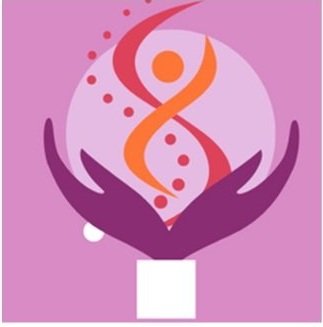
Welcome to the Midwifery Toolkit
Offering alternative options to older midwives
It is recommended that older midwives are presented with the professional opportunities (e.g., telephone triage) that are less demanding to keep them in the workplace
Teaching Compassionate Mind Training (CMT) to help midwives deal with stressful events
An intervention that supervisors, managers and midwifery lecturers can implement to help a midwife to recover from experiencing a distressing incident in clinical practice. (p.15)
Simulation-based training program to reduce stress
A mandatory simulation-based program demonstrated a positive impact at individual and organizational levels.
Camaraderie is important
Encourage social connectedness via virtual informal staff support groups (p.8)
Increase support for networking among midwives
Many midwives experience similar challenges, yet remain disconnected between various practices. Increasing their capacity to network could support mentorship but also facilitate practical challenges like sharing child care.
A web-based holistic stress reduction program for midwives
A web-based holistic stress reduction intervention using yoga, mindfulness-based stress reduction, and meditation indicated a potential for an improvement in stress levels among midwives.
Mindfulness based stress reduction program (MBSRP)
These programs are available to midwives in Ontario and covered by OHIP if refered to by physician.
Established planned, structured, and gradual RTW process
Improve relations with hospital staff
Relations between between midwives and hospital staff are common sources of stress and challenge. Improving these relations may reduce harassment and bullying.
POPPY (Program for the prevention of PTSD) in midwives
This is a programme for the prevention of PTSD in midwifery which includes a package of educational and supportive resources comprising an educational workshop, information leaflet, peer support and access to trauma-focused clinical psychology intervention.
Identification of risk factors and reorganization of care
The key to early prevention of burnout is the identification of risk factors and the reorganization of care.
Consider introducing clinical supervision sessions
The organisational support (such as clinical supervision sessions) has been recommended as a way to combat each of the burnout components
Review MEPs to introduce focus on preventing burnout and improving MH
Review the staffing of midwives within organization
Organisations should review their maternity staffing levels using a recognised workforce planning tool, such as Birthrate Plus, to make sure they have the appropriate midwifery establishment for their workload. (p.5)
Professional supervision should be seen as a competence
Professional supervision should be viewed as a competency requirement and be incorporated into the midwifery recertification programme.
Creating centralized EMR for midwives to use for shared care
A centralized patient database could reduce administrative burden and facilitate shared care.
Guideline on Managing Personal & Practice Health
This document by College of Midwives of Ontario provides information on supports and resources for midwives who are experiencing mental health and addiction issues.
Providing support and training on resilience for MP students and mentors
In Investigating Resilience in Midwifery report, it is argued that it is important to provide reflective sessions focused on building resilence in MEPs/orientation sessions for MEP as well as mentorship on resilience and self-development in midwifery supervision
A training workshop on stress
A short-term training workshop of stress management delivered in one hospital in Iran that proved to be effective in diminishing level of occupational stress.
Offering mindfulness stress reduction course
A mindfulness practice holds promise for increasing individual and workplace resilience.
BIPOC Mentorship Program
A program launched by Toronto Metropolitan University MEP for self-identified students who are Black, Indigenous, or People of Colour (BIPOC). This program, open to any midwife or student residing and working in Canada, is an opportunity for BIPOC midwives to pair, share and care with the next generation of BIPOC students.
Supporting midwife-to-midwife relationship and ensuring respect
Based on the results of their study, Darling et al. conclude that supporting healthy midwife-to-midwife relationships and improving respect for and understanding of midwifery are areas that call for novel interventions and multi-pronged approaches.
Creating a Circle of Support
A solo midwife should begin by creating a circle of support (at least two other midwives) around her) in order to best handle the bullying.
Team charter
Midwifery practices should create “team charter” for establishing the vision and promote positive intraprofessional dynamic































